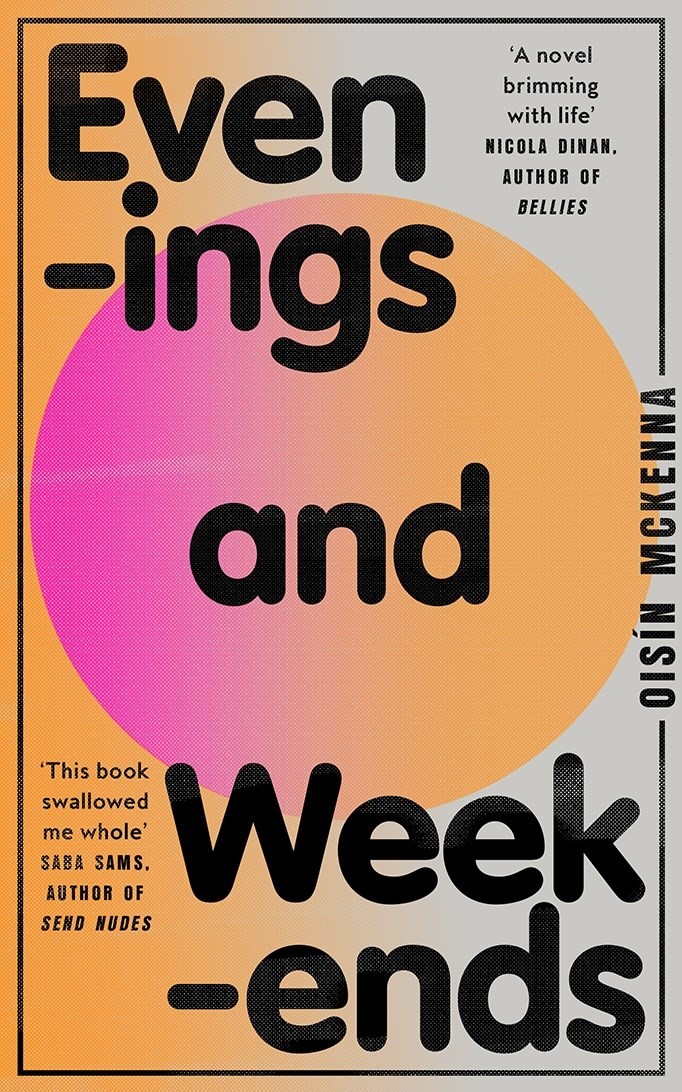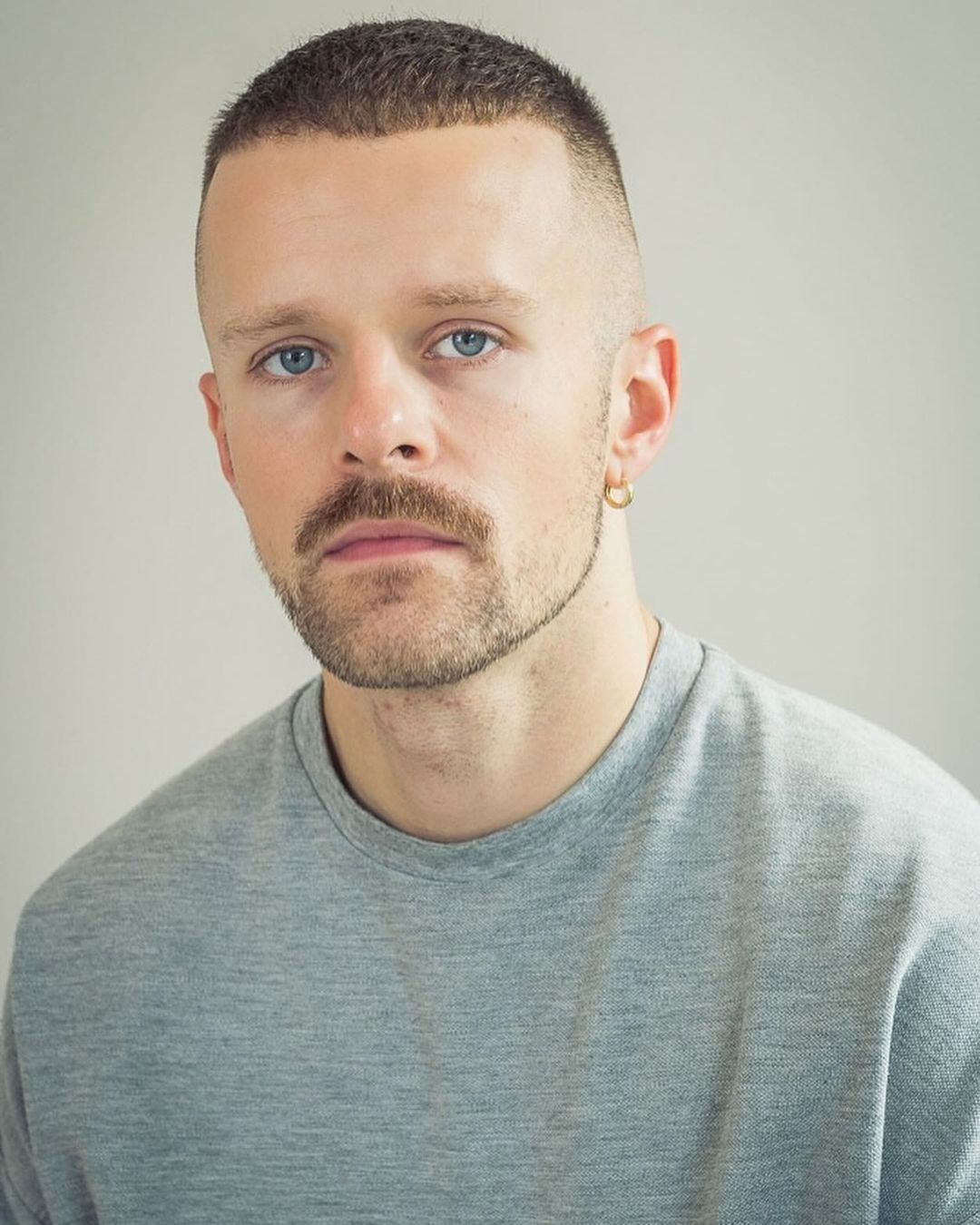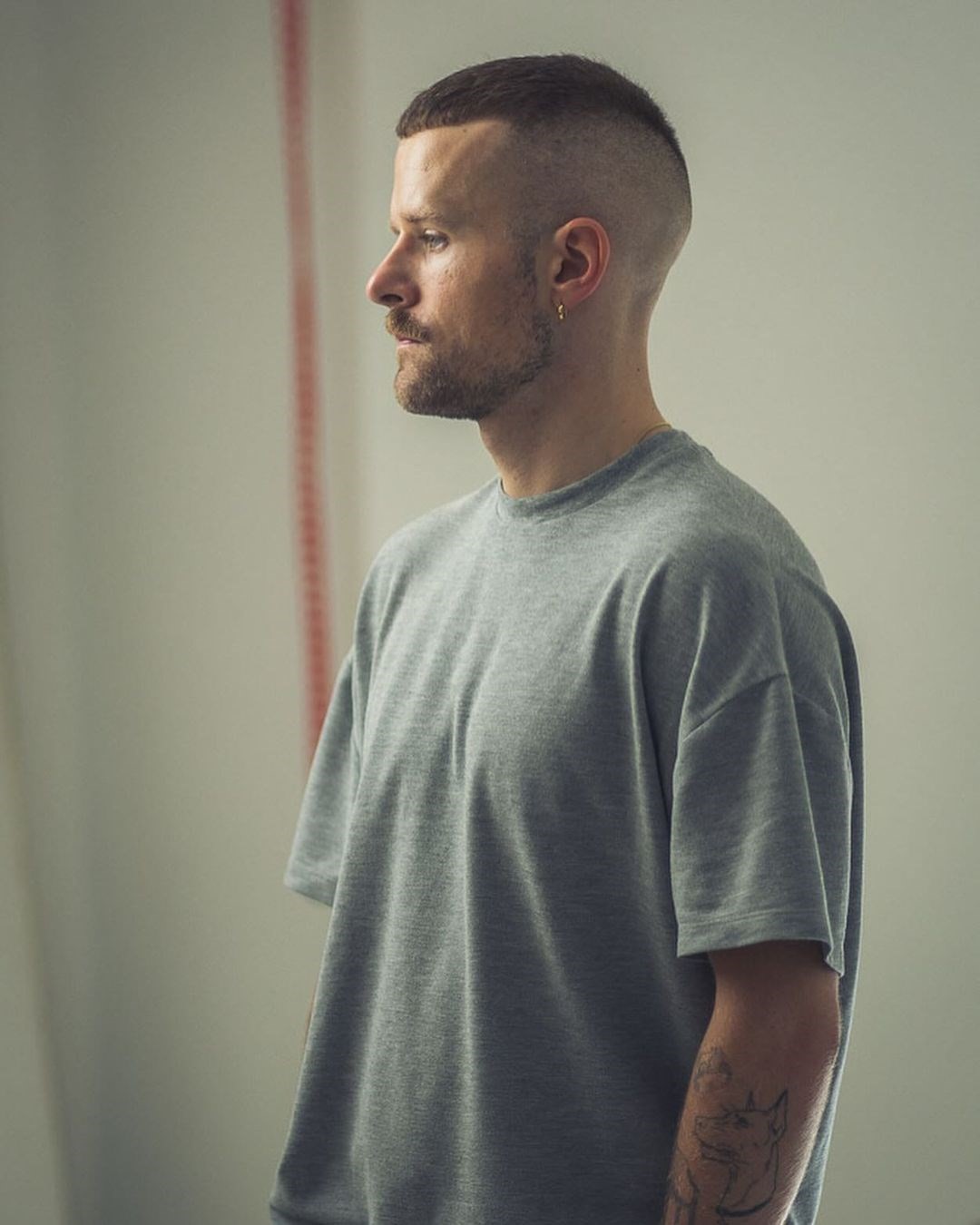“Relatable” is possibly the most overused word in pop culture, but it’s still an apt way to describe Evenings and Weekends, the remarkable debut novel from Oisín McKenna. Anyone who’s questioned their life choices, suppressed a part of themselves or wondered where the hell to go next will find something to connect with in McKenna’s elegant web of interconnected characters. At times, the mirror he held up to my own life was almost blinding.
Unfolding over a sweltering weekend in London, the novel follows gay young professional Phil and his best friend Maggie, a thwarted artist-turned-waitress, as they grapple with the realisation that they’re about to take very different paths. Maggie is pregnant and planning to move back to Basildon, the Essex town where she, Phil and her bewildered boyfriend Ed grew up, then left to pursue their big city dreams.
“Being based in England, I was interested in talking about England,” says McKenna, a writer and artist who grew up in Drogheda, a port town 25 miles north of Dublin. “But I wanted the place these characters come from to be of a similar size, demographic and proximity to a capital city as my own hometown.” We’re talking over soft drinks at Dalston Superstore, the east London LGBTQ+ venue that Maggie fixates on as a big, queer symbol of everything she’s leaving behind. McKenna lives nearby and says he felt similar pangs when he briefly moved out of the area a few years ago.
Queerness and community are prominent threads in McKenna’s vivid tapestry. But so too are class, identity, sexual trauma, the harsh romance of London life and generational differences. Phil’s mother Rosaleen has something important to tell her son but struggles to reach him both geographically and emotionally. There’s also the not so small matter of a whale trapped in the River Thames, a surreal flourish that doesn’t just give bring the characters together, but also reminds us of the fragility of all our lives.
Here, Oisín McKenna discusses some of the novel’s key themes and the affirming place he hopes it takes us to.

Nick Levine: Your novel is filled with so many beautifully drawn characters. But what was the starting point – did one character emerge first?
Oisín McKenna: I would say the kind of initial elements were long friendships between gay guys and straight women. Lots of those relationships were particularly formative in my life, but they were also very complicated and could have a lot of jealousy within them. I also wanted to look at the relationship between working-class queer children and their parents as [the children] become more cosmopolitan and socially mobile.
I started writing the book in 2019 – the last year before Covid, but also the last [full] year of Jeremy Corbyn’s leadership of the Labour Party. It felt like there was a lot at stake politically in terms of there being this potentially more expansive version of life in the UK being on the table. I was interested in what it feels like in people’s emotional lives when they can kind of look towards the future and see themselves in it.
At the time, I was living in a warehouse a bit like the one in the book. We had this very illegal, precarious contract and we were always at risk of being evicted, but my time there was incredibly formative. So I was interested in capturing that sense of being in a very precious time in your life that, for various reasons, could always be on the verge of ending. Generally in the world at large, there was and continues to be this sense of apocalypse in the zeitgeist: whether it’s real or perceived, it’s certainly something that people experience.
NL: Parts of your novel remind of something interesting that Neil Tennant said in an interview: that the major difference between him and his friends isn’t sexuality per se, but whether or not they have children.
OM: I agree with that. I guess a lot of my own relationships with straight women – and queer women – were founded on having quite intimately similar experiences and feelings about ourselves and our place in the world. My relationship to my own gender has often been pretty ambiguous: I’ve never really been at home, broadly speaking, in men’s social worlds. So there’s always been many commonalities – and of course many important differences – between the way I am and the kind of women’s social worlds that I’m a part of. But then I guess the prospect of having children – particularly in the conventional man-woman-child [way] – presents quite a radical point of departure in the way that we experience the world.
I think I probably don’t want that, but if I did want children, it wouldn’t be quite as available to me. And I guess there is a sort of sadness in that although I also feel very happy for my friends [who have children]. But I think through spending time with those friends, I kind of started to notice that in many ways I’m really happy with my life – I have the life that I want. But I also noticed that there’s a real depth and richness of experience that my friends have through being parents. And I was really interested in exploring all of those things in the book.

NL: What did you want to say about queerness in the book?
OM: A few things. I think a lot of characters in the novel, broadly speaking, desire to live a more adventurous life – in many ways a queerer life. But they’re variously limited in their capacity to do that. For example, there’s a sort of polyamorous conundrum in the novel, and I was interested in exploring the practical barriers to polyamory in terms of time and money. I do feel that if you’re experiencing long-term financial precarity, you’re already experiencing such a high level of constant risk that it can be more difficult to take on the emotional risks involved in a complex polyamorous relationship – or at least potentially involved.
I was also interested in exploring, like, one’s relationship to one’s own body – and how various kinds of queer-phobic violence, both emotional and physical, might put a distance between someone and their body. I wanted to think about what the healing from that might look like. I feel like I don’t really know the answer to that, but the book makes some grasps towards it. And beyond that, I think some of the characters in the book experience a more subtle and private form of queerness. I mean, you and I are sitting here in Dalston, which is one of London’s queer centres, but some of these characters experience their queerness in a quieter, more internal and certainly more fraught way.
NL: We’re sitting in Dalston Superstore – one of London’s trendiest LGBTQ+ venues, for want of a better word. But the book also features a cameo from another, much more old-school LGBTQ+ venue: Central Station in King’s Cross.
OM: Central Station appeals to some sort of nostalgic impulse in me. I think it’s the relationship that place has not just to London’s queer history and lineage, but also to the history and lineage of London more broadly. I mean, particularly the fact that it’s in King’s Cross, an area that has been so aggressively redeveloped in recent years – or at least parts of it have. It’s a marvel that a place like Central Station is still there. It feels really resistant to the march of time and I think that’s cool.
NL: What above all do you hope people take away from the book?
OM: A lot of the book’s big emotional themes are about how hard it is to communicate, and how hard it is to feel understood. Even among people who know and love each other very much, it can be very hard to say “I love you”. But I guess the place I tried to get to [in the book] is that these characters are telling each other all the time without using those particular words – maybe without using any words. And this is not a failure of communication; it’s fine and good and should be cherished.
For lots of reasons, people end up entering their adult lives without feeling that they can communicate the real kind of depth and richness of what’s happening inside. But just because that’s not being communicated with words, it doesn’t mean it’s not understood by others. Often people around each other do innately understand that they’re loved and cared for without it having to be said out loud.
Evenings and Weekends by Oisín McKenna is published by 4th Estate on May 9.
